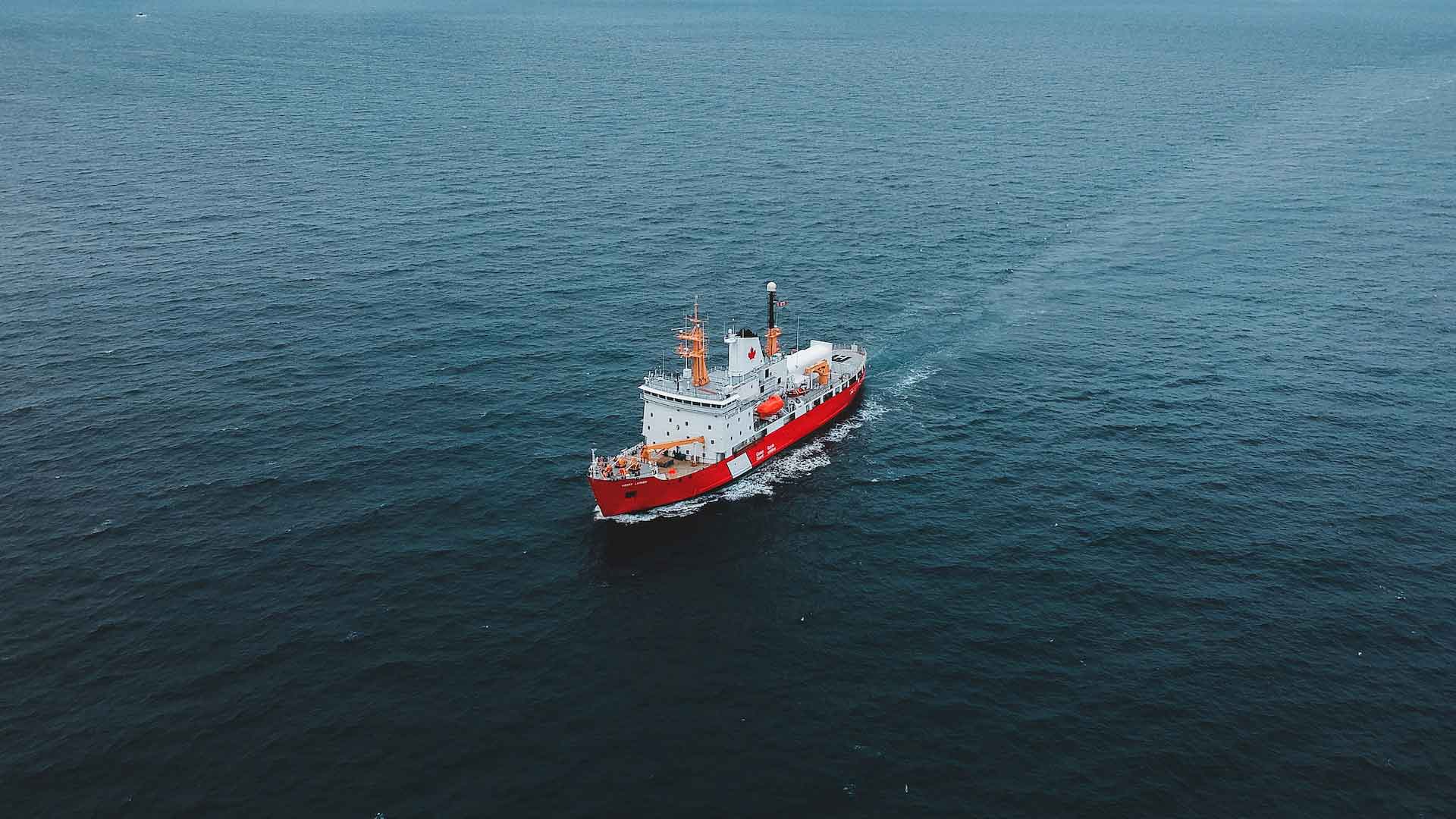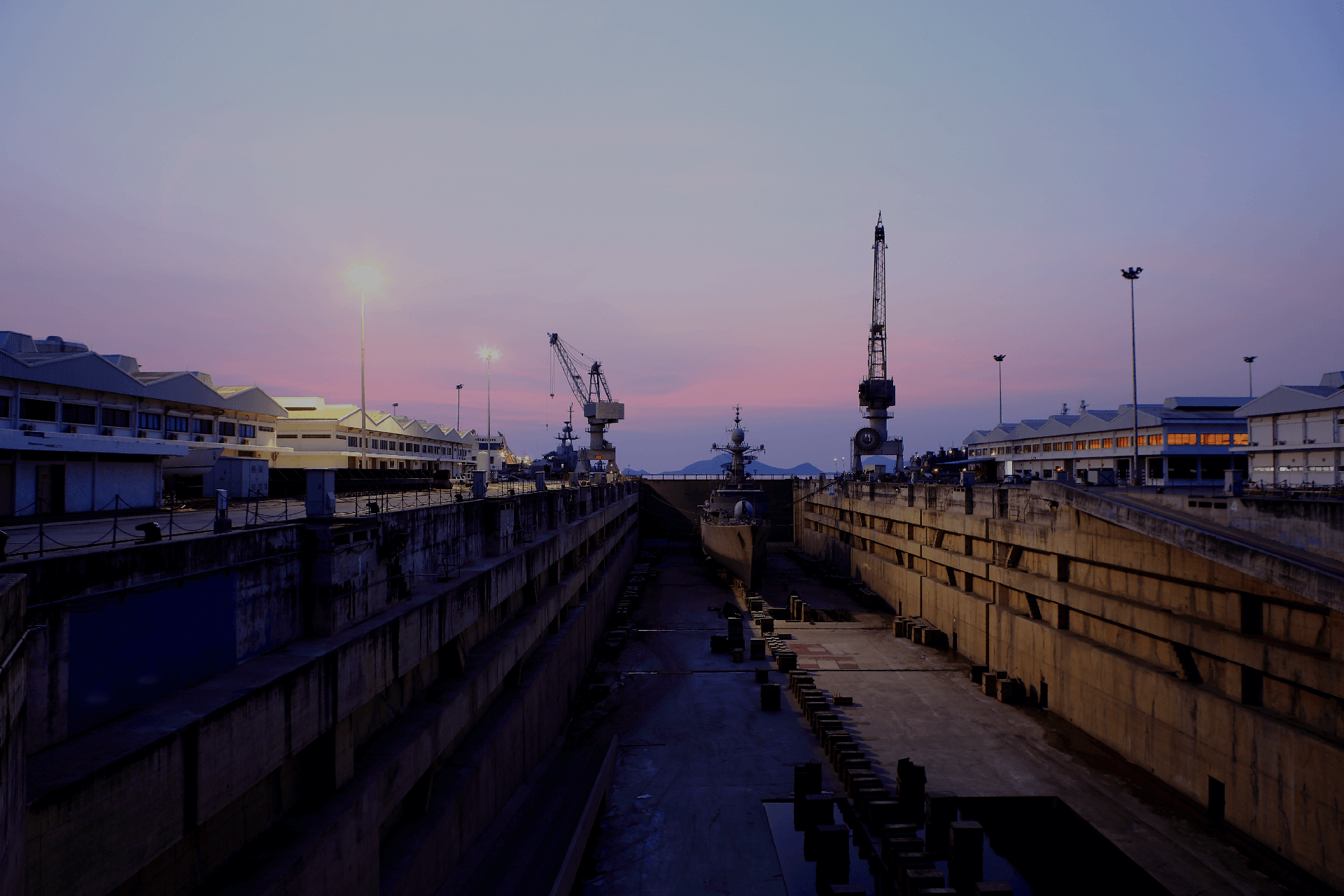Naval Architecture and Offshore Engineering - Study line
Learn methods to design, construct, test, and operate ships, offshore wind turbines, wave energy converters, and aquaculture facilities – while developing safe, cost-effective, and efficient structures with minimal adverse impacts on the local and global environments.

Naval Architecture and Offshore Engineering
If you are interested in the mechanical aspects of Naval Architecture and Offshore Engineering, you may consider this study line under the master programme in Mechanical Engineering. The aim is to prepare you for a maritime industry career or basic research in this field. The focus is on developing safe, cost-effective, and efficient ships and offshore structures, that have minimal adverse impacts on the environment.
This study line assumes a background equivalent to the DTU BSc program in Mechanical Engineering with a focus on Maritime Engineering. You should have a basic knowledge of fluid mechanics, ship design, intact and damaged stability, environmental loading, and ship structures.
Advanced technical disciplines within Naval Architecture and Offshore Engineering include: structural assessment of ships, wave theory, wave loads on ships, and ship operations. You will also obtain competences in several closely related topics, such as flow around structures, computational fluid dynamics (CFD) as well as theory of plates and sandwich constructions. You will also learn general aspects of innovation and sustainability.
A full study plan can be seen below together with a list of recommended elective courses. It is mandatory to follow this study plan to obtain a diploma in Mechanical Engineering with the studyline “Naval Architecture and Offshore Engineering”. In the case of an exchange stay abroad the student has to contact the Head of Study in advance. During your study, elective courses can be chosen to obtain the exact tailored Maritime profile that you desire. Finally, you will do a master’s thesis to focus and sharpen your skills and meet the requirements for the engineer of the future within Naval Architecture and Ocean Engineering. Completing this study line will provide you with a diploma stating that you are a Mechanical Engineer with the specilization “Naval Architecture and Offshore Engineering”.
The following study plan assumes the start of the study in September, such that 1st semester is fall, 2nd semester is spring, 3 semester is fall and the thesis work is carried out in spring. It includes only one spring semester of courses.
Innovation in Engineering (Polytechnical... Innovation in Engineering (Polytechnical Foundation)
Elective courses
Master's thesis
Suggested elective courses:
| 41117 | Marine and Coastal Structures | 5 | point | Autumn E1A (Mon 8-12) |
| 41129 | Turbulent flows | 5 | point | Autumn E4B (Fri 8-12) |
| 41315 | Applied CFD | 5 | point | June |
| 41316 | Advanced CFD | 5 | point | Autumn E3B (Fri 13-17) |
| 41320 | Advanced fluid mechanics | 5 | point | Autumn E2B (Thurs 8-12) |
| 41346 | Internal combustion engines - experimental methods and data processing | 5 | point | Spring F4A (Tues 13-17) |
| 41514 | Dynamics of machinery | 5 | point | Spring F4B (Fri 8-12) |
| 41525 | Finite Element Methods | 10 | point | Autumn E5 (Wed 8-17) |
| 41526 | Fracture mechanics | 5 | point | Autumn E2B (Thurs 8-12) |
Please note: You can maximum obtain 30 ECTS of elective credits.
